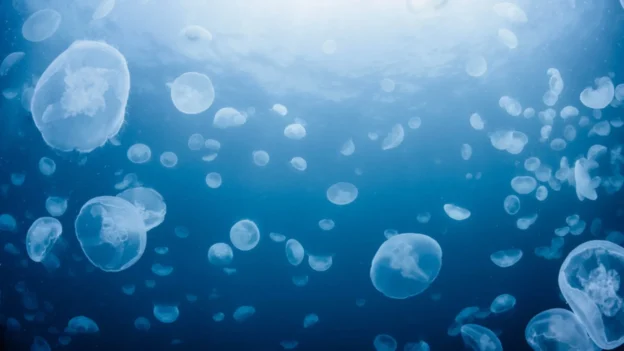The Paluel nuclear power plant, one of the largest in France, again faced serious operational setbacks after a massive influx of jellyfish clogged its cooling system. It is the second similar incident in less than a month at French nuclear facilities, highlighting a growing environmental threat to the country’s energy infrastructure.
Reduction of production at Paluel nuclear power plant
As reported by EDF (Électricité de France), the swarm of jellyfish directly affected the filters of the seawater pumping station, which forced the shutdown of one of the four reactors and to reduce the power of another as a preventive measure.
This situation caused a decrease of 2.4 gigawatts in electricity production, which represents almost half of the total capacity of Paluel, located in the Normandy region.
This episode is in addition to the one recorded weeks ago at the Gravelines plant in the north of the country, where a “massive and unpredictable” accumulation of jellyfish blocked the cooling systems, forcing the temporary shutdown of several units.
The common factor in both cases is the high sea temperatures, which favor the proliferation of this marine fauna near the water intakes of the power plants.
Vulnerability of coastal power plants
Both Paluel and Gravelines are supplied with water to cool the reactors from the sea, which makes them particularly sensitive to alterations in the coastal ecosystem. Researchers warn that climate climate changethrough the warming of the oceans, is favoring this type of phenomena with greater frequency and intensity.
EDF reported that the safety maneuvers were activated at 21:00 local time, after detecting the blockage in the non-nuclear area of the facility. Technicians are currently working on cleaning and overhaul procedures to restore full operation of the affected units.
Nuclear power accounts for about 70% of the French energy matrix, so these outages, although controlled, raise concerns about the resilience of the plants to external environmental threats.
The energy authorities are evaluating whether new prevention strategies should be implemented in plants located in coastal areas.
Source: BBC
Photo: shutterstock

